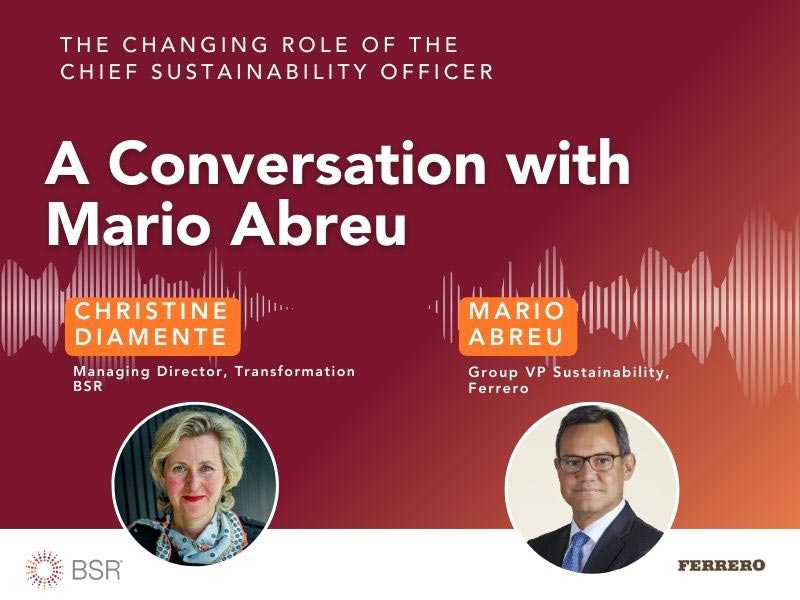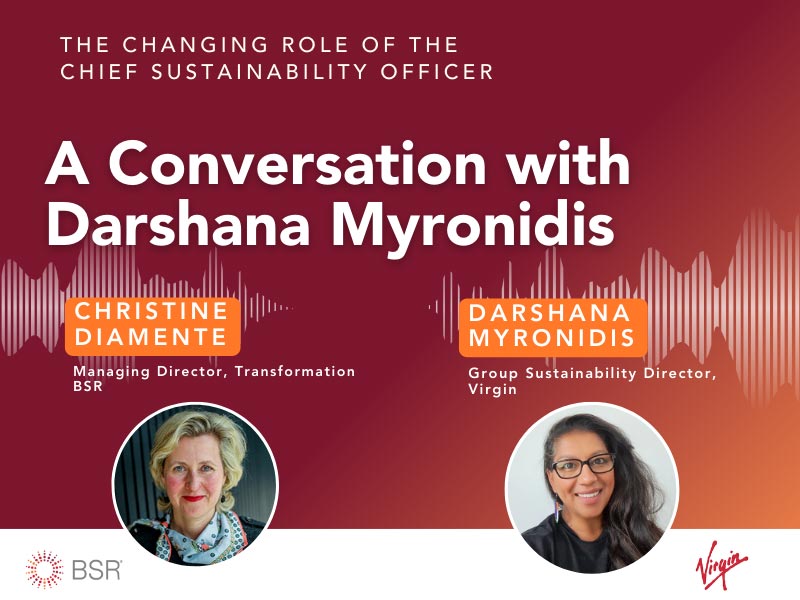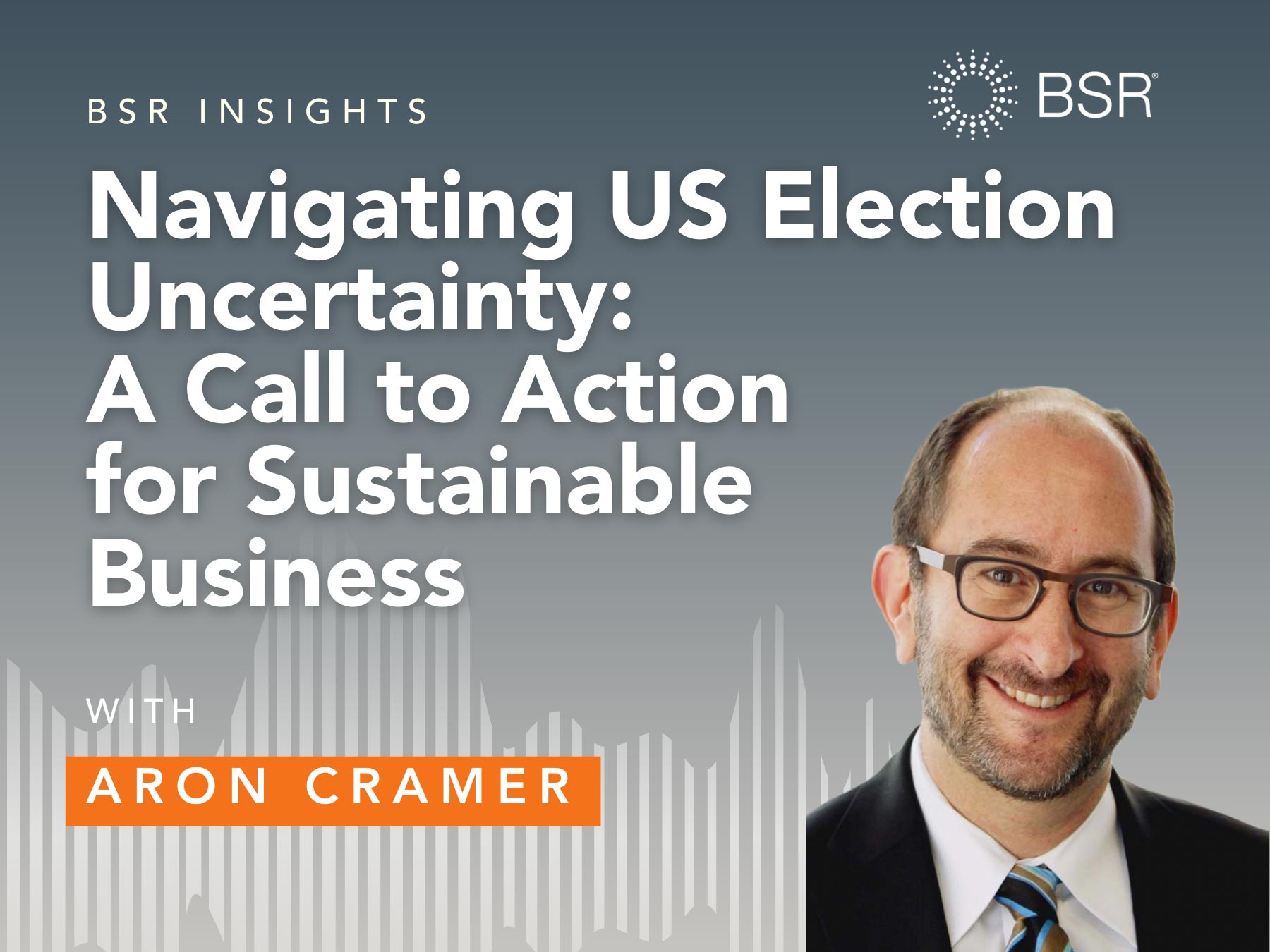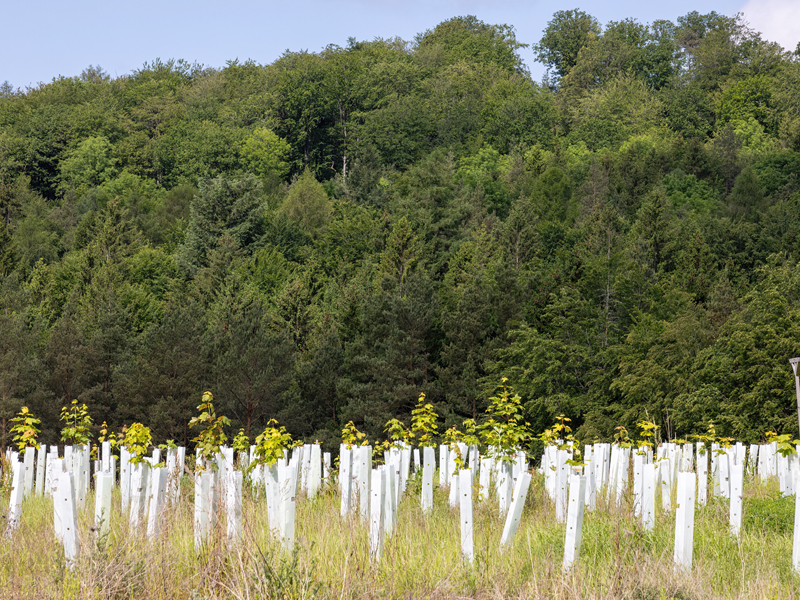
Photo: Fey Marin
We are at a hinge point in history.
The French refer to the 30 years after the end of World War II as “Les Trente Glorieuses,” or “The Glorious 30 Years,” when prosperity flowered, culture was dynamic, and peaceful conditions prevailed after two devastating wars.
For business, the three decades following the fall of the Berlin Wall in 1989 can be seen the same way. During that time, the market economy has been the world’s dominant organizing principle, business has largely thrived (notwithstanding the global financial crisis), innovation has flowered, and huge numbers of people have enjoyed improved living conditions, especially in the Global South.
As we enter the 2020s, we are at a new hinge point in history. Every business today is facing three strategic challenges:
- First, there is the need to redefine the role of business in society, in sync with changing expectations, and establish clear business purpose that goes beyond short-term profits.
- Second, we face the urgent objective to shift the economy to a path that delivers truly shared prosperity that respects the natural boundaries of our planet, not least the climate crisis.
- Third, every company must craft a strategy that navigates an unprecedented set of disruptions—and in some cases existential questions—that are rapidly reshaping the competitive environment.
These strategic challenges come as a result of major paradigm shifts that have taken place in recent years. Changes in policy, politics, public perception, and the natural world are creating profound impacts for business.
First and foremost, after decades when markets were seen as the ultimate, efficient vehicle to deliver broad societal benefits, the public today is increasingly skeptical about this model, and the light-touch regulation that has marked the past several decades is now distrusted by many.
Our natural resources are also under threat, with considerable impacts for public health and stable, thriving economies. Simply put, the commodities on which we rely for sustenance and enjoyment can no longer be taken for granted.
The rising tide of innovation has also had a fairly wide berth; today, there is more concern about the impacts of new technologies and business models, bringing about the “techlash.”
The accumulation of wealth in the hands of a few is being questioned at a time when the “precariat” is growing, with public anxiety about declining living standards leading to political and economic backlash. And for many interconnected reasons, the consumption-driven economy that has been an engine of growth can no longer be taken for granted as the dominant model. The “religion” of ever-increasing economic growth is losing adherents, and there are signs that many people are seeking satisfaction in new and different ways that do not involve consumption of products.
In this context, many are calling for more activist government. At the same time, nation-states are struggling to deal with global challenges, with many turning toward populism and nationalism and a crackdown on civil society. Political uncertainty and distrust have become endemic.
All of this adds up to a New Climate for Business. The framework conditions that have shaped our world, and the world of business, have changed.
The Decisive Decade Ahead
The fundamental changes reshaping our energy systems, our food supply, and water availability demand comprehensive systemic solutions. Sustainability disconnected from investors, policymakers, and communities will have no credibility.
These changes come as we enter the decisive decade of the 2020s. The next 10 years will be decisive for business, and for all of us. We will either deliver on the Sustainable Development Goals (SDGs) or we won’t. We will peak emissions in line with the Paris Agreement or we won’t. Business will regain public trust or it won’t. We will re-establish social mobility and reduce income inequality or we won’t.
Here is what we know for certain: The diverse and powerful assets of business are essential if we are to build a resilient, fair, and sustainable economy. It is impossible to imagine achieving the promise of the decade ahead without business. And it is equally impossible to imagine that outcome with business as usual. This is a time when the scale of change and challenge requires big vision, high levels of ambition, and a strong sense of urgency.
The inescapable implication of this is that sustainable business as we have known it is not enough. So, standalone sustainability projects will have their place, but incremental improvements won’t deliver the SDGs. The fundamental changes reshaping our energy systems, our food supply, and water availability demand comprehensive systemic solutions. Sustainability disconnected from investors, policymakers, and communities will have no credibility. Measurement and reporting that fails to embrace all forms of value misleads markets and leads to bad outcomes. And, in an era of profound change, risk averse leadership only creates more ... risk.
The New Climate for Business demands a radically new approach to business and markets. As Marc Benioff wrote recently in the New York Times, “Capitalism as we have known it is dead.” Business as we need it, however, is only getting started. As we enter the 2020s, businesses will be judged by their purpose, their ambition, their urgency, their openness, and their innovation. The only businesses that will thrive in the decade to come, and quite possibly the only businesses that will survive for the long-run, are the ones who will master these challenges.
The question then is how business will “meet the moment.”
How Will Business Meet the Moment?
At this critical time, when business leadership is so badly needed, how do we define it?
This starts with purpose. As the Financial Times wrote in September, “businesses that combine profit with a wider purpose will benefit from the reinforced commitment of employees and customers. Those that fail to do so will not survive to become the companies of the future.” For all the talk these days about purpose, this hits the right note: It is only those companies with a clear and motivating purpose that will make it through the fundamental changes reshaping our world and the world of business. And more and more, businesses are defining their purpose in terms that make important contributions to the achievement of the SDGs: through nutrition, clean transportation, financial independence, and healthcare, for example.
Business is traditionally reticent about expressing big goals without being sure that it can achieve them. This caution is as unsuited to today’s world as the rotary phone or an all-male board of directors.
The businesses that will thrive in the decade to come will be the ones with the most ambitious plans. Business is traditionally reticent about expressing big goals without being sure that it can achieve them. This caution is as unsuited to today’s world as the rotary phone or an all-male board of directors. Ambition is the best way to create truly resilient business strategies.
Ambition must start with climate, where the drive for net-zero carbon objectives has fast taken hold. What’s intriguing about this is that many of those embracing net zero—from nation-states like the United Kingdom to companies like Maersk—cannot be sure about the precise pathway to this achievement, but state the goal nonetheless. Big questions require big solutions, and it is exciting to see companies and business leaders shed their timidity about what is possible. There can be little doubt that this approach is not only the only way to achieve big goals, but also motivates and attracts staff and provides a north star during a time of change.
Business leadership will also be defined increasingly by a company’s commitment to and facility for collaboration. The vision of leadership as a solitary exercise by a singular visionary leader must be retired. The leaders we need today know the limits of what they can accomplish on their own, know how to partner effectively, and understand that achieving their goals with respect to sustainability can only happen through systemic change. We are facing systemic challenges: an economy that has exacerbated inequality, an energy system that must shift to net zero, food systems under threat, and a social contract that is failing to meet 21st-century realities. It is only with a commitment to large-scale collaboration that we can shift these systems in a more positive direction.
Today’s Priorities
And it is the Sustainable Development Goals that provide the north star for business and the world. To reach big long-term goals, we must act with urgency today. Here is an urgency agenda for 2020, built to deliver for 2030.
Commit to achieving more widely shared prosperity
Much of the backlash against global trade and support for populism is based on a very simple concept: a lack of economic fairness and opportunity. We are living in a time marked by growing income inequality and great anxiety over the future of work. Business cannot thrive in such an environment and risks disruption and backlash. As Paul Polman has said, “there is no business case for enduring poverty.” A genuine commitment to inclusive prosperity is essential and one of our biggest opportunities for innovation and sustainable growth. This means business should do all it can to promote economic opportunity and skill development in its own operations and commit also to partnering to develop 21st-century social contracts that modernize the pact between citizens and employees, business, and government.
Develop and deploy new technologies with human rights and ethics principles
The full potential of new technologies, as well as other innovations, will only be reached if they have full public support. Innovation moves more quickly than either social consensus or regulatory frameworks. Business therefore has both a social duty and self-interest in having its innovations reviewed to ensure that they are consistent with both human rights and ethical principles. Speed to market is not always in the interest either of society or the businesses that are producing the products and services that enable connection.
Commit to net-zero carbon
The science is speaking loudly: Climate impacts are coming faster and with more ferocity than previously predicted. Emissions continue to grow, despite the overwhelming scientific consensus that we must peak emissions in 2020—a target which we are not on track to achieve. Many businesses are meeting this challenge with more ambitious targets, including the nearly 100 companies that have committed this year to a 1.5°C target. Their ambition is increasingly aligned with the financial community—earlier this year, 477 investors with US$34 trillion in assets urged governments to take action to reach the 1.5°C target. That number needs to grow—fast—if the “real economy” is to shift to a net-zero model in time. What’s more, it is essential that business move more decisively to align its lobbying practices with its commitments to climate action in practice.
Preserve nature and biodiversity
The science is equally clear that we are facing a potentially disastrous extinction of species and decline of the food and other natural systems that literally sustain human life. The next two years will see a rise in the call to action to stabilize and preserve our food systems, develop nature-based solutions to climate, and preserve the biodiversity that is essential for the ecosystems that provide nutrition, medicines, and a stable climate.
Design business strategies and governance to align performance with purpose
A sustainability agenda that is not supported and reinforced by valuations, targets, and accountability will never reach its full potential. Survey after survey reveals that most boards have not yet embraced fully the need to design corporate purpose, business strategies, or incentive systems in sync with our changing world. Neither have regulators created the incentives and frameworks that align business purpose with society’s objectives. The rules of the game are changing, and business should both reform its own structures and call for action by governments to truly align business and societal objectives. This will enable business to unleash its innovation, investments, and employment strategies for broad benefit.
Advocate for open societies
None of this will come to pass if walls and borders are built. Business has always supported open markets. It is clear that open markets cannot thrive—or indeed survive—if societies are not open. At a time when many leaders are promoting division, nationalism, and xenophobia, business must use its voice to preserve and expand open societies that enable creativity, connection, and yes, trade, to flourish. The hardware of business will not work if the software of open societies is disabled. Business may consider this to be too political ... but the stakes are too high to retreat to that view.
In Conclusion
Let us use every day to turn business to the task of innovating for social benefit, attacking climate change, and reversing inequality.
Les Trente Glorieuses (The Glorious 30 Years) is part of history—one of prosperous growth and peaceful society. So too is the period since 1989. Now we face another hinge point in history, and it is up to us to build the future, and to work toward a “Glorious 2030.”
Dean Acheson, the U.S. Secretary of State in the aftermath of World War II, was famously “present at the creation” of the postwar order that led to considerable human progress. We, who are present at the creation of our new era, would do well to remember his words: “Always remember that the future comes one day at a time.” As we grapple with this New Climate for Business, let us use every day to turn business to the task of innovating for social benefit, attacking climate change, and reversing inequality.
Topics
Let’s talk about how BSR can help you to transform your business and achieve your sustainability goals.








